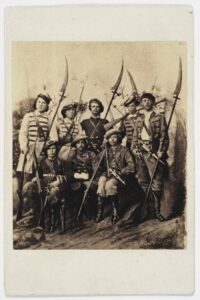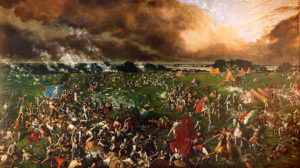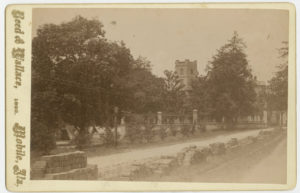
Announcing the 2023 Anthony E. Kaye Memorial Essay Award
The Journal of the Civil War Era is pleased to announce that Dr. Lindsey Peterson has been selected as the recipient of the Anthony E. Kaye Memorial Essay Award for 2023. Her winning essay is titled, “‘Homebuilders’: Gender and Union Commemoration in the Trans-Mississippi West.” The prize selection committee, consisting of Dr ...
Read More
Read More

Editors’ Note for March 2023 JCWE
Welcome to the first issue of the 2023 volume of the Journal of the Civil War Era. The issue features three research essays and a review essay that highlight the journal's broad geographical, chronological, and topical coverage. We present articles that take us from the antebellum North to California to ...
Read More
Read More

Crossing Borders as Refugees: A Comparison of Dakota and Poles
Civil War era historians have made several comparisons between Russia’s suppression of the Polish rebellion in 1863 and the U.S. efforts to quash the enslavers’ rebellion in the United States. Most of these comparisons are either imbued by traces of U.S. exceptionalism, such as the many U.S. centric interpretations of ...
Read More
Read More

Insurrections, Indigenous Power, & The Empire for Slavery in the Southwest
The realities of Indigenous power, marronage, and Mexico’s emancipation policies haunted Anglo-American visions of a white supremacist imperial order in the trans-Mississippi West. On May 25, 1836 Congressman John Quincy Adams rose from his desk in the U.S. House of Representatives to excoriate Anglo-Texans’ “war of aggression, of conquest, and ...
Read More
Read More

Teaching the Layered Histories of the Mount Vernon Barracks
During its 180-odd years of operation, Mount Vernon Barracks in south Alabama was home to thousands of people, including white soldiers, Apache prisoners, and Black psychiatric patients. It was an arsenal, a Confederate base, a U.S. Army outpost, a detention site for yellow fever victims, and a psychiatric facility. Shuttered ...
Read More
Read More
